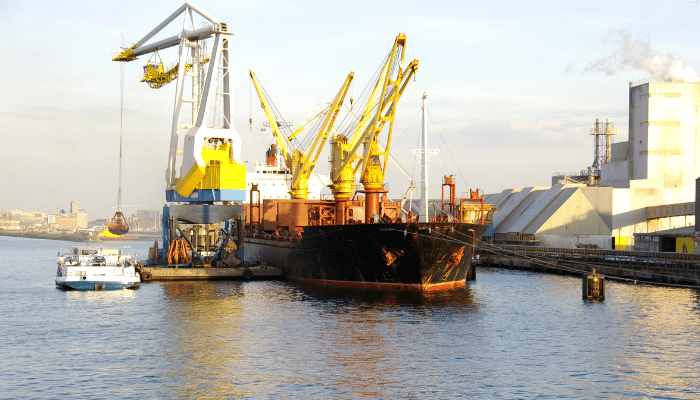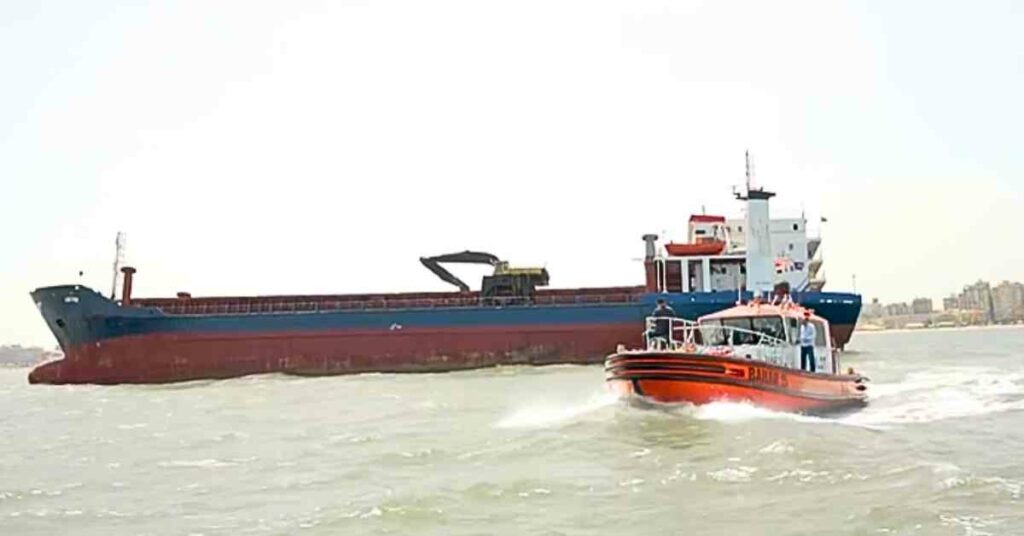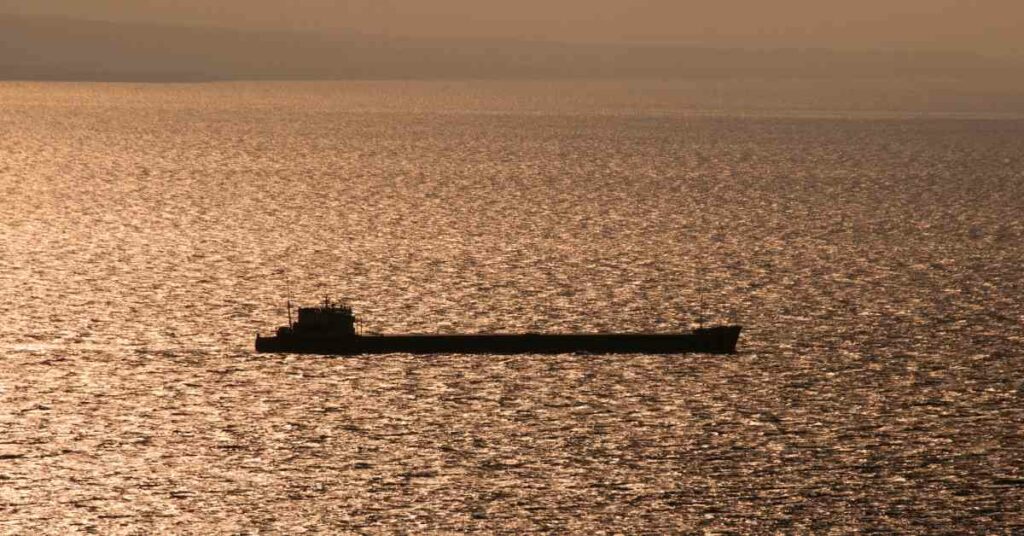Russia Agrees To Extend Ukraine Grain Shipping Deal Another 60 Days
Russia has agreed on going for a two-month extension of an agreement that has permitted Ukraine to ship grain via the Black Sea to parts of the world that are struggling with hunger, Recep Tayyip Erdogan, the Turkish President, declared on Wednesday, a boost to worldwide food security following the war helped drive up the prices.
The UN and Turkey brokered the breakthrough accord last summer with the warring sides, which came with a separate deal to facilitate the shipments of Russia’s food and fertilizers that Moscow insists has not been applied.
Russia had also threatened to bow out if its concerns were not ironed out by Thursday. Such brinkmanship is not new: With a similar extension in the balance in March, Russia unilaterally decided on renewing the deal for up to 60 days instead of the 120 days outlined in the deal.

Maria Zakharova, Russia’s Foreign Ministry spokeswoman, said on Wednesday that issues would need to be resolved at the technical level. Neither Erdogan nor she mentioned concessions Moscow could have received.
Efforts are going to be extended to make sure that the conditions of the deal are fulfilled so that it continues in the next phase, mentioned Erdogan, who declared the much-anticipated decision two days after being forced into a runoff in the presidential election of Turkey.
Extending the Black Sea Grain Initiative is a win for nations in the Middle East, Africa, and parts of Asia that are reliant on Ukraine’s barley, vegetable oil, wheat, and other affordable food items, particularly as drought takes a toll. The deal helped lower the prices of food commodities such as wheat over the last year, but that relief hasn’t reached the kitchen tables.
Russian and Ukrainian products feed the world, António Guterres, the U.N. Secretary-General mentioned.
They matter as the world is still navigating a path-breaking, cost-of-living crisis. Alexander Kubrakov, the Deputy PM, welcomed the extension but emphasized that the deal has to work effectively. On Facebook, he also blamed Russia for dragging its heels on joint examinations of vessels by Ukrainian, Russian, U.N., and Turkish officials.
Average inspections daily — meant to make sure vessels carry food and not weapons that could help either side — have dropped steadily from a peak of 10.6 noted in October to 3.2 last month. Shipments of Ukraine’s grain have declined over the recent weeks.
Russia denied slowing the work. No vessels have so far been cleared to enter three open ports of Ukraine since 6 May 2023, and Kubrakov has to say that almost 70 vessels have currently been waiting in Turkish waters to participate.
Russia, in the meantime, is shipping record amounts of wheat via other ports. Critics suggest that indicates Moscow was posturing or striving to wrest concessions in areas like Western sanctions.
The deal has permitted more than 30 million metric tons of Ukraine’s grain to be shipped, with over half that going to developing countries. Turkey, China, and Spain are the greatest recipients, and Russia states that reflect food isn’t going to the poorest nations.
Guterres has said that developed countries bring in Ukraine’s corn for animal feed whereas the emerging economies get “a majority” of grain for individuals to eat. He also noted that exports lower the prices for everyone.
Looking ahead, it is being hoped that the exports of fertilizers and food, including ammonia, from Ukraine and the Russian Federation will be able to reach global supply chains both predictably and safely, the U.N. chief mentioned on Wednesday.
The U.S. said that Russia must stop creating hurdles to the deal.
There should not be a need to keep reminding Moscow every few weeks to keep its promises and to not use hunger as its weapon in the war against Ukraine, Vedant Patel, the State Department deputy spokesman told the reporters.
Russia is expected to export more wheat than any nation ever has in a year, at 44 million metric tons, explained Caitlin Welsh, the director of the Global Food Security Program associated with the Center for Strategic and International Studies.
Trade flows tracked by financial data provider Refinitiv reflect that Russia exported more than 4 million tons of wheat in April 2023, the greatest volume for the month within five years, following near-record or record highs in previous months.
Exports since last July hit 32.2 million tons, that’s 34% above the figure observed in the same period last season, per Refinitiv.
Welsh mentions that Russia is aware that the lesser grain Ukraine is able to export, the more it can make up for the shortfall. And limitations on Black Sea shipments would indicate that the war-torn nation would also have to be reliant more on land channels via the EU, which has stirred anger from neighbours.
The more it limits Ukraine’s access to ports of the Black Sea, the better it’s for the political influence with trading partners and the more lucrative it is for Russia in the sense that it is straining unity among the member states of the EU and their support toward Ukraine, she said.
With Ukraine’s wheat harvest expected in June 2023 and the need to sell that crop in July 2023, maintaining a Black Sea shipping corridor is the key to avoiding taking on yet another large chunk of wheat and other grains off the market, mentioned William Osnato, a senior research analyst associated with an agriculture data and analytics company named Gro Intelligence.
It comes as places including Tunisia, Algeria, Morocco, Syria, and East Africa— major food importers— are encountering drought and economic challenges that are likely to keep food prices quite high.
The shortage of food in the system and the lack of affordable fertilizer continues pushing up the prices, making it more difficult for families in nations like Somalia to predict if they are going to be able to afford a meal the next day, mentioned Shashwat Saraf, the emergency director for East Africa associated with the International Rescue Committee.
References: AP News, Los Angeles Times
Disclaimer :
The information contained in this website is for general information purposes only. While we endeavour to keep the information up to date and correct, we make no representations or warranties of any kind, express or implied, about the completeness, accuracy, reliability, suitability or availability with respect to the website or the information, products, services, or related graphics contained on the website for any purpose. Any reliance you place on such information is therefore strictly at your own risk.
In no event will we be liable for any loss or damage including without limitation, indirect or consequential loss or damage, or any loss or damage whatsoever arising from loss of data or profits arising out of, or in connection with, the use of this website.
Disclaimer :
The information contained in this website is for general information purposes only. While we endeavour to keep the information up to date and correct, we make no representations or warranties of any kind, express or implied, about the completeness, accuracy, reliability, suitability or availability with respect to the website or the information, products, services, or related graphics contained on the website for any purpose. Any reliance you place on such information is therefore strictly at your own risk.
In no event will we be liable for any loss or damage including without limitation, indirect or consequential loss or damage, or any loss or damage whatsoever arising from loss of data or profits arising out of, or in connection with, the use of this website.
Do you have info to share with us ? Suggest a correction
About Author
Marine Insight News Network is a premier source for up-to-date, comprehensive, and insightful coverage of the maritime industry. Dedicated to offering the latest news, trends, and analyses in shipping, marine technology, regulations, and global maritime affairs, Marine Insight News Network prides itself on delivering accurate, engaging, and relevant information.

About Author
Marine Insight News Network is a premier source for up-to-date, comprehensive, and insightful coverage of the maritime industry. Dedicated to offering the latest news, trends, and analyses in shipping, marine technology, regulations, and global maritime affairs, Marine Insight News Network prides itself on delivering accurate, engaging, and relevant information.
Latest Shipping News Articles You Would Like:
Subscribe To Our Newsletters
By subscribing, you agree to our Privacy Policy and may receive occasional deal communications; you can unsubscribe anytime.









